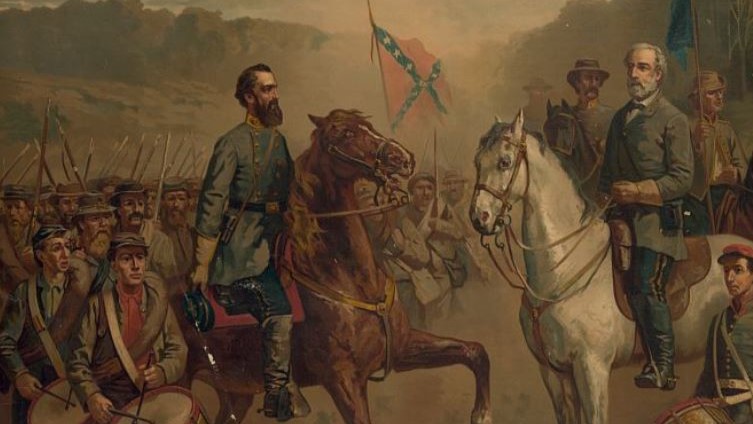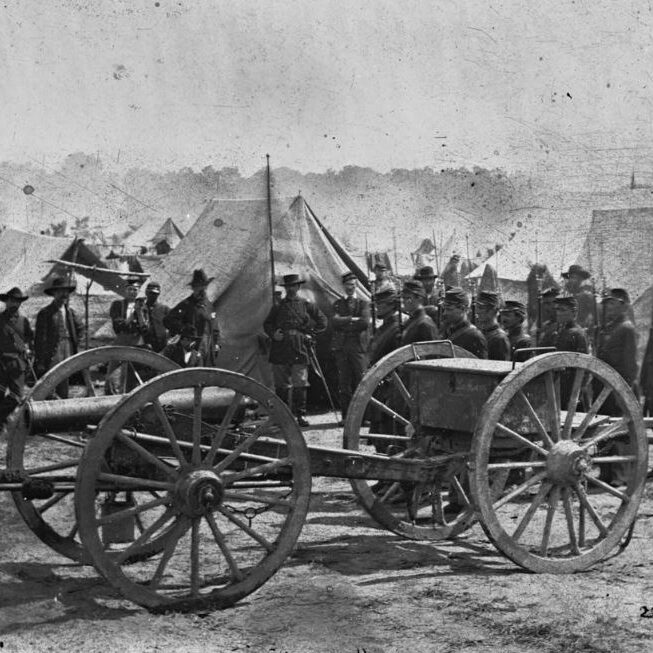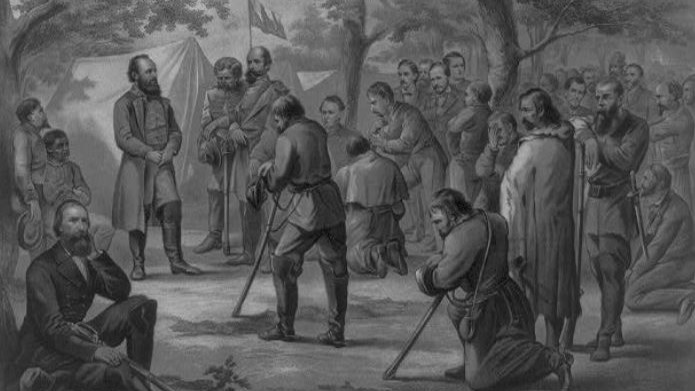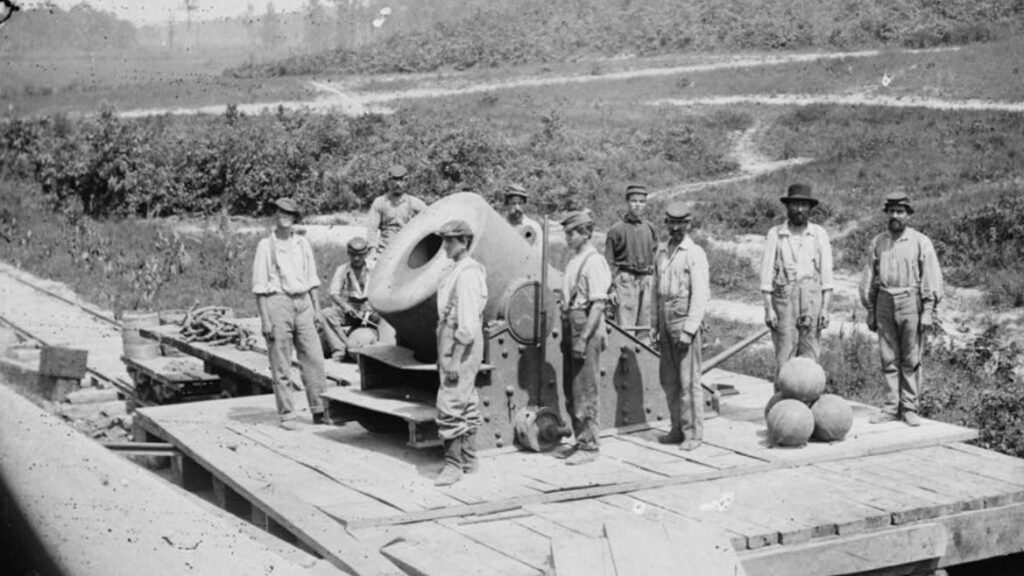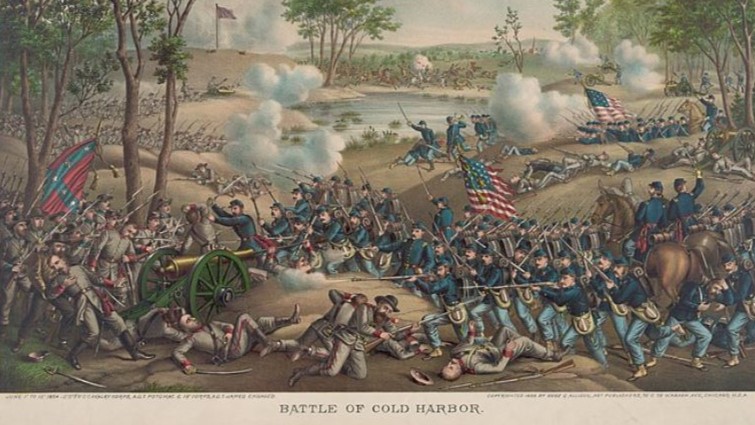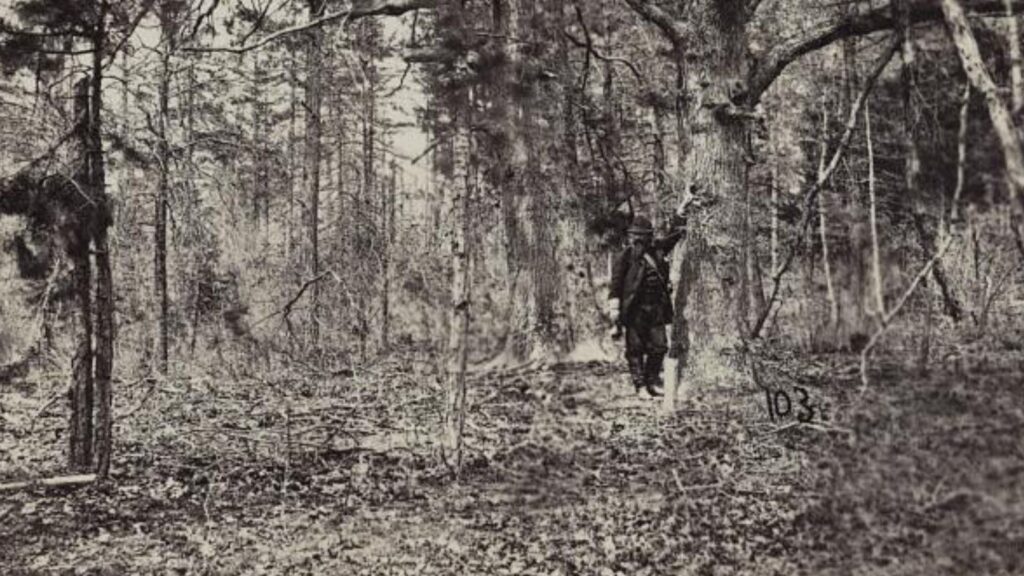Thomas ‘Stonewall Jackson’ was a legendary Confederate general during the American Civil War and he remains one of the conflict’s most admired figures.
Despite his stern demeanor and eccentric habits, Stonewall Jackson earned the deep respect and affection of his soldiers and fellow officers alike.
This article explores the factors that contributed to Stonewall Jackson’s widespread popularity, including his tactical brilliance, unwavering religious faith, and personal courage. By examining his leadership style, military achievements, and interactions with troops, we’ll uncover why Stonewall Jackson became such a loved figure in Southern history.
1. Stonewall Jackson’s Leadership Qualities
Stonewall Jackson’s Decisive and Bold Decision-Making
Stonewall Jackson was renowned for his decisive and bold decision-making, a quality that set him apart as a military leader.
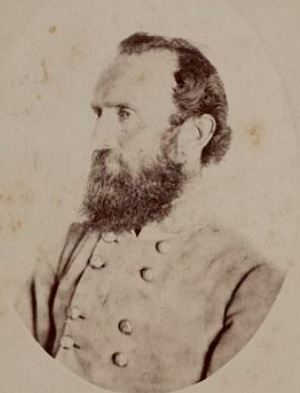
His tactics at key battles, such as the First Battle of Bull Run, exemplify his ability to make quick, decisive moves that often caught his enemies off guard. At the First Battle of Bull Run, Jackson’s decision to stand firm and not retreat earned him the nickname “Stonewall.”
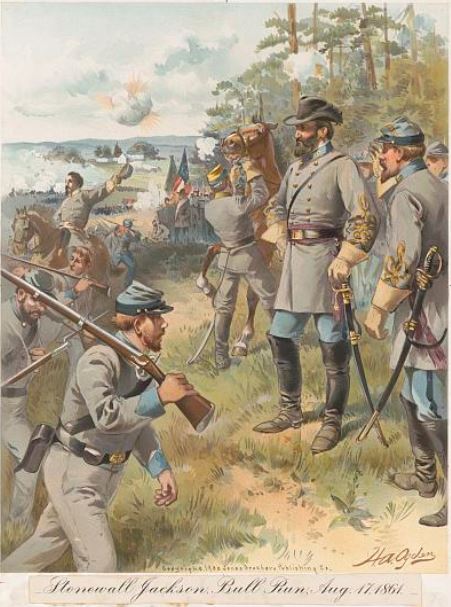
Another notable example of Jackson’s bold decision-making was during the Shenandoah Valley Campaign. Jackson’s rapid movements and unexpected tactics baffled the larger Union forces.
He successfully used the terrain to his advantage, executed swift flanking maneuvers, and conducted surprise attacks.
His ability to make quick decisions and adapt to changing circumstances allowed his smaller force to achieve significant victories.
Jackson’s decisiveness in these moments demonstrated his understanding of the importance of momentum in warfare. By keeping his enemies constantly guessing and on the defensive, he was able to outmaneuver and defeat them despite being outnumbered.
Jackson’s decisiveness also extended to his logistical and strategic planning.
He was known for his rigorous attention to detail and his ability to foresee potential challenges. For instance, before engaging in battle, Jackson would meticulously plan his supply lines, ensuring that his troops were well-equipped and ready for prolonged engagements.
His foresight and preparation meant that when the time came to make a decisive move, he could do so with confidence, knowing that his forces were prepared for the aftermath.
This decisiveness wasn’t limited to large-scale battles; it was a hallmark of Jackson’s overall approach to command. He instilled a sense of urgency and purpose in his officers and men. This culture of decisiveness permeated his entire command structure, ensuring that his troops could act swiftly and effectively even in his absence.
Stonewall Jackson was an Inspirational Leader
Jackson’s leadership was not just about strategic brilliance and tactical decisions. He was also an inspirational figure to his troops, a quality that cannot be understated.
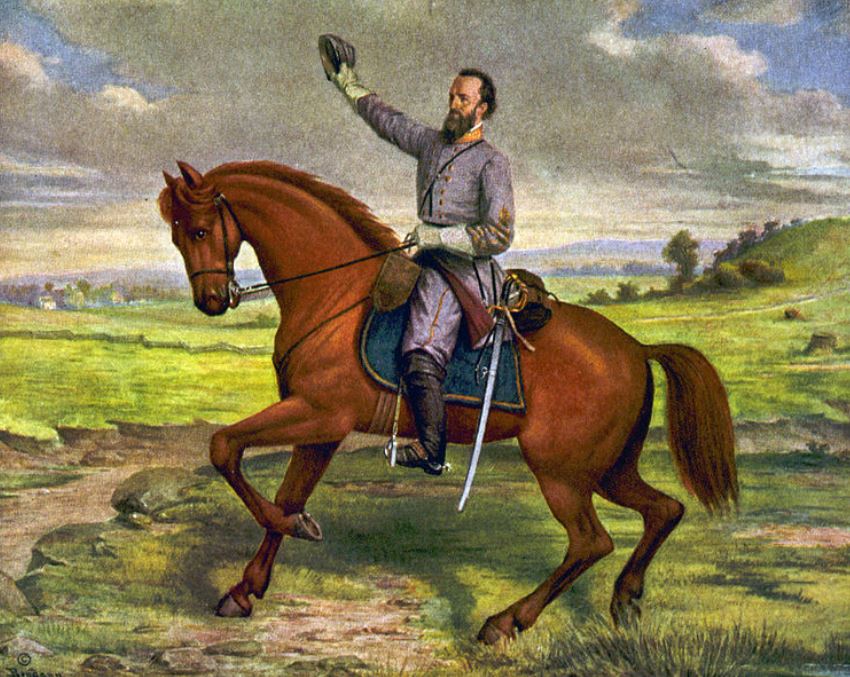
His personal bravery set an example for his men, making him a figure they were willing to follow into the most perilous situations.
Jackson was often seen leading from the front lines, sharing in the dangers and hardships of his soldiers.
This was not a common practice among all military leaders of the time, many of whom preferred to direct battles from a safer distance. This act of leading by example instilled a deep sense of loyalty in his men. They saw Jackson as more than just a commander; he was a comrade who shared their trials and tribulations.
In addition to his personal bravery, Jackson showed genuine concern for the well-being of his soldiers.
He was known to personally inspect the conditions of his camps, ensuring that his men had adequate supplies and proper medical care. Jackson understood that the morale and health of his troops were crucial to their performance in battle.
By taking an active interest in their welfare, he fostered a strong bond of trust and loyalty.
Jackson’s speeches and personal interactions were filled with references to honor, duty, and the righteousness of their cause. This rhetoric resonated deeply with his men, who were often motivated by a sense of duty and a belief in their mission.
Despite his high rank and numerous accolades, he remained humble and approachable.
He did not seek personal glory or recognition; instead, he focused on the success of his men and the achievement of their collective goals. This selflessness was a key aspect of his inspirational leadership. Jackson’s men knew that he was fighting for them and for the cause they all believed in, not for his own personal gain.
2. Stonewall Jackson’s Personal Characteristics
His Deep Religious Faith
Stonewall Jackson’s deep religious faith was a cornerstone of his life and leadership.
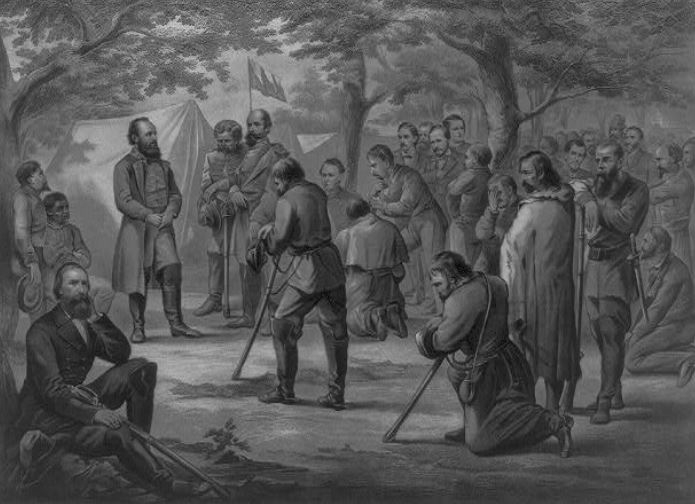
As a devout Christian, his faith was not merely a private matter but a public and guiding force that influenced his actions and decisions.
Jackson’s dedication to his faith was evident in his daily routine; he was known to pray frequently, both in private and publicly before battles. This practice of seeking divine guidance resonated deeply with many of his soldiers who shared his faith.
Jackson’s piety was reflected in his worldview and his approach to leadership. He believed that his military successes and failures were part of God’s divine plan.
This belief gave him a sense of purpose and calmness even in the most chaotic and dangerous situations.
His unwavering faith provided him with a moral compass and a sense of destiny that inspired his troops. They saw in him a leader who was not only competent and courageous but also spiritually grounded and guided by higher principles.
Jackson was known for his kindness and generosity, which he attributed to his Christian beliefs. He often went out of his way to help others, whether it was providing for the families of fallen soldiers or ensuring that his men received proper medical care.
Jackson’s religious practices also included strict observance of the Sabbath. He refused to conduct military operations on Sundays unless absolutely necessary, believing that it was a day of rest and worship.
This adherence to his beliefs showed them that he was a man of principle who stood by his convictions regardless of the circumstances.
Personal Integrity and Discipline
Jackson maintained high standards for himself and expected the same from those under his command.
His discipline was legendary. Jackson believed that discipline was essential for success, both on and off the battlefield. He led by example, demonstrating that a strong moral character and a disciplined approach to life were key to achieving one’s goals.
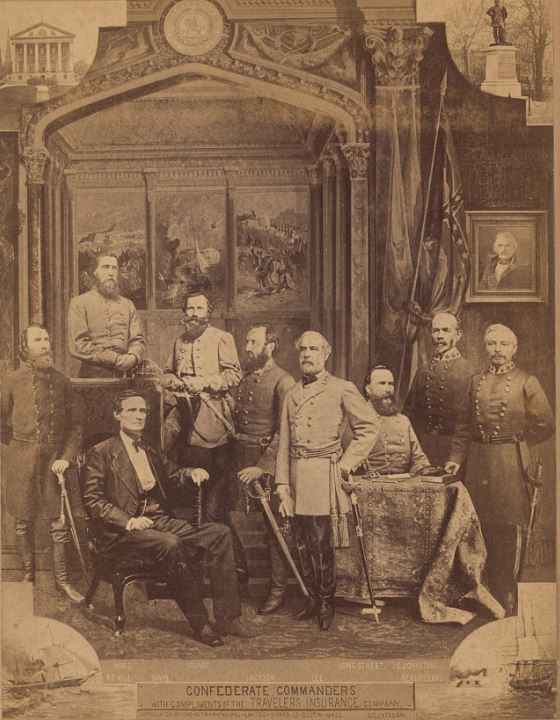
One of the most famous anecdotes illustrating Jackson’s integrity involves his refusal to indulge in alcohol. He believed that it impaired judgment and discipline, and he abstained completely.
His decision to avoid alcohol was not merely a personal choice but a statement of his values. He expected his officers and men to follow his example, promoting a culture of sobriety and self-control within his ranks.
Jackson was a stickler for punctuality and demanded that his orders be followed precisely.
Furthermore, Jackson’s integrity was reflected in his dealings with his superiors and peers. He was known for his straightforwardness and honesty, even when it was difficult or unpopular. He did not shy away from expressing his opinions and stood by his convictions, regardless of the potential consequences.
3. Stonewall Jackson’s Strategic Brilliance
Stonewall Jackson’s strategic brilliance was one of the key factors that made him a formidable military leader. His innovative tactics and ability to inspire confidence in his troops set him apart and left a lasting legacy in military history.
Innovative Tactics
Jackson’s strategic genius was most evident in his innovative and often unconventional tactics.
One of the best examples of his tactical brilliance is the Shenandoah Valley Campaign of 1862.
During this campaign, Jackson masterfully used speed, surprise, and the terrain to his advantage. He executed rapid marches that allowed his smaller force to appear at different locations unexpectedly, outmaneuvering Union forces and creating confusion among his opponents.
In the Shenandoah Valley Campaign, Jackson faced several Union armies with a significantly smaller force.
Despite being outnumbered, he managed to win a series of battles by using deceptive maneuvers and aggressive attacks.
For instance, he would march his troops through the night, covering incredible distances to launch surprise attacks at dawn. This relentless pace and unpredictability earned him the nickname “Old Blue Light” among his men.
In the First Battle of Bull Run, his defensive tactics were crucial in holding the Confederate line.

His brigade’s steadfastness earned him the moniker “Stonewall,” as his troops stood firm like a stone wall under intense Union fire. This stand not only prevented a Confederate defeat but also turned the tide of the battle, leading to a significant Southern victory.
Another notable example of Jackson’s tactical brilliance was during the Battle of Chancellorsville in 1863.
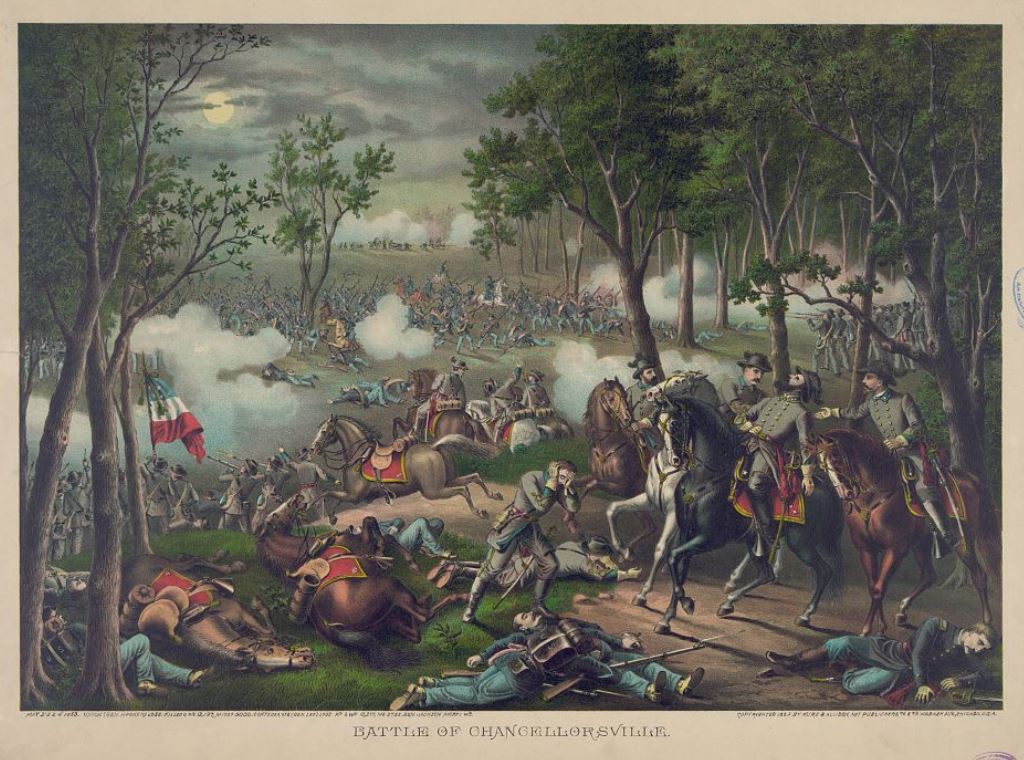
Jackson executed one of the most daring and successful flanking maneuvers in military history.
Under General Robert E. Lee’s overall command, Jackson took his corps on a wide march to the Union Army’s exposed flank. This surprise attack caught the Union forces off guard, leading to a crushing defeat for the Union Army. But tragedy would happen here as he was mortally wounded by friendly fire during the battle.
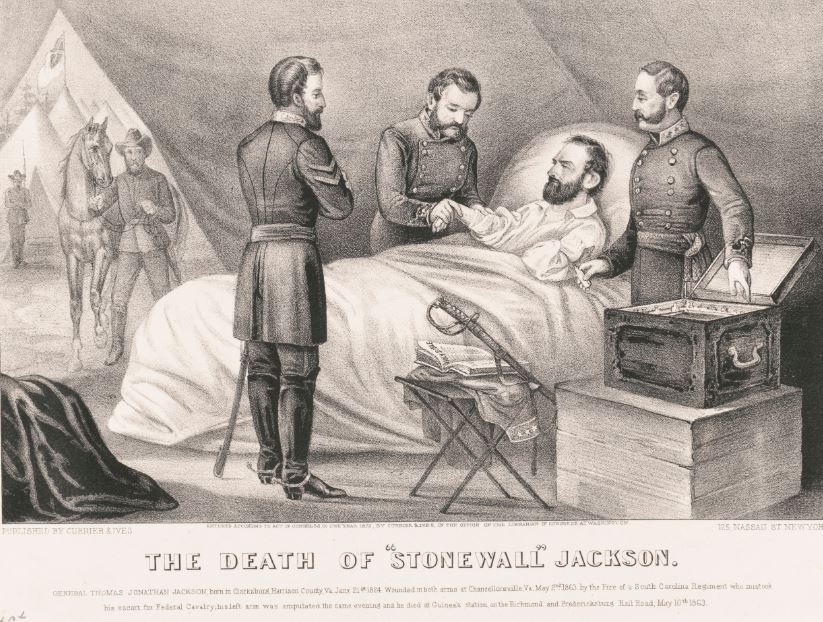
Stonewall Jackson’s Significant Victories
Stonewall Jackson won several significant battles that demonstrated his military prowess and strategic brilliance. Here are some of the notable battles he won:
1. First Battle of Bull Run (First Manassas)
- Date: July 21, 1861
- Significance: Jackson earned his famous nickname “Stonewall” during this battle for his steadfast defense, which contributed to the Confederate victory.
2. Battle of Kernstown
- Date: March 23, 1862
- Significance: Although technically a Confederate defeat, Jackson’s aggressive tactics in this battle marked the beginning of his successful Shenandoah Valley Campaign.
3. Battle of McDowell
- Date: May 8, 1862
- Significance: Jackson’s victory here was the first major success of the Shenandoah Valley Campaign, showcasing his ability to outmaneuver Union forces.
4. Battle of Front Royal
- Date: May 23, 1862
- Significance: This battle was a key victory in the Shenandoah Valley Campaign, allowing Jackson to threaten Union communication lines.
5. First Battle of Winchester
- Date: May 25, 1862
- Significance: Another significant victory in the Shenandoah Valley Campaign, forcing Union troops to retreat and boosting Confederate morale.
6. Battle of Cross Keys
- Date: June 8, 1862
- Significance: Jackson successfully repelled Union forces, continuing his string of victories in the Shenandoah Valley.
7. Battle of Port Republic
- Date: June 9, 1862
- Significance: The final battle of the Shenandoah Valley Campaign, where Jackson decisively defeated Union forces, cementing his reputation as a master tactician.
8. Battle of Gaines’ Mill
- Date: June 27, 1862
- Significance: Part of the Seven Days Battles, Jackson played a crucial role in this Confederate victory, helping to lift the siege of Richmond.
9. Battle of Cedar Mountain
- Date: August 9, 1862
- Significance: Jackson’s forces achieved a significant victory against Union troops, demonstrating his ability to win in difficult circumstances.
10. Second Battle of Bull Run (Second Manassas)
- Date: August 28–30, 1862
- Significance: Jackson’s maneuvers were instrumental in the Confederate victory, solidifying his reputation as a brilliant commander.
11. Battle of Harpers Ferry
- Date: September 12–15, 1862
- Significance: Jackson’s capture of the Union garrison at Harpers Ferry was one of the largest surrenders of Union troops during the war.
12. Battle of Fredericksburg
- Date: December 11–15, 1862
- Significance: Jackson’s corps played a key role in the Confederate victory, holding strong defensive positions against Union attacks.
13. Battle of Chancellorsville
- Date: April 30 – May 6, 1863
- Significance: Jackson executed a daring flanking maneuver that was crucial to the Confederate victory, though he was mortally wounded by friendly fire during the battle.
These battles showcase Jackson’s exceptional leadership, tactical innovation, and ability to inspire his troops, contributing to his enduring legacy as one of the Civil War’s most celebrated commanders.
5. Stonewall Jackson’s Enduring Legacy
The reverence for Stonewall Jackson continued long after his death.

His passing was deeply mourned by the Confederacy, and tributes poured in from across the South, reflecting the profound impact he had on those who fought under him and the civilians who supported the Confederate cause.
Jackson’s legacy was preserved and celebrated through various means, including the erection of statues, the naming of schools and streets, and annual commemorations of his life and military achievements.
He became a symbol of Southern valor and dedication, representing the ideal Confederate soldier who exemplified bravery, skill, and unwavering commitment to the cause.
Numerous memorials were established in his honor, such as the Stonewall Jackson Shrine in Virginia, which marks the location of his death.
Monuments and markers throughout the South commemorate his key battles and contributions, serving as historical reminders of his strategic genius and leadership qualities. These memorials not only honored Jackson but also provided a focal point for the Southern narrative of the Civil War, celebrating the Confederacy’s military heroes.
Modern Perspectives
Contemporary views on Jackson have evolved over time, reflecting broader changes in societal attitudes and historical scholarship. Modern critiques have emerged, offering a more nuanced and balanced understanding of his legacy.
Discussions about Jackson’s role in the Civil War now often include considerations of the broader context in which he operated, including the issues of slavery and states’ rights.
Public opinion has similarly shifted, with some advocating for the reevaluation of monuments and honors dedicated to Confederate figures. This has sparked debates about how to balance historical reverence with modern values, especially regarding issues of race and equality. In some cases, statues of Jackson have been removed or relocated, reflecting a broader reassessment of how history is commemorated and taught.
Stonewall Jackson: Frequently Asked Questions
What was Stonewall Jackson most famous for?
- Stonewall Jackson was most famous for his decisive victories in the Shenandoah Valley Campaign and his role in the Confederate victories at Bull Run.
Why is Stonewall Jackson a hero?
- Jackson is considered a hero for his strategic brilliance, relentless courage, and inspirational leadership during key Civil War battles.
What were Stonewall Jackson’s last words?
- His last words were reportedly, “Let us cross over the river, and rest under the shade of the trees.”
Who defeated Stonewall Jackson?
- Jackson was never defeated in battle; his death resulted from friendly fire, not a direct defeat by an enemy force.
Who killed Stonewall?
- Stonewall Jackson was mortally wounded by friendly fire from his own troops during the Battle of Chancellorsville.
How did Stonewall Jackson get his nickname?
- Jackson earned the nickname “Stonewall” for his steadfast defense during the First Battle of Bull Run, where he stood like a stone wall.
Did Stonewall Jackson have slaves?
- Yes, Stonewall Jackson owned slaves. He was a product of his time, despite his complex personal beliefs about slavery.
How did Stonewall Jackson lose his arm?
- Jackson lost his arm due to a friendly fire incident at the Battle of Chancellorsville, which led to its amputation.
Further Reading
If you enjoyed this article about Why Was Stonewall Jackson So Well Liked and Beloved?. You may be interested to read more about the Civil War battles in Virginia, Maryland and North Carolina or more general American history. Here are some specific American Civil War articles:
- Was General George G. Meade a Good General?
- What was the Significance of the Army of the Potomac?
- Why Did General Robert E. Lee Join the South in the Civil War?
- Why was the Battle of the Wilderness so Brutal?
- Did the Confederacy have the Legal Right to Secede from the Union?
- Was General Sherman’s March to the Sea Justified?
- Was McClellan’s Peninsula Campaign a Risky Gamble?
You may also enjoy these articles about the American Civil War:

